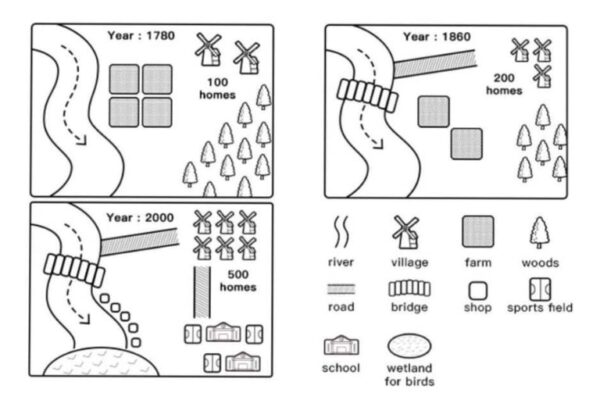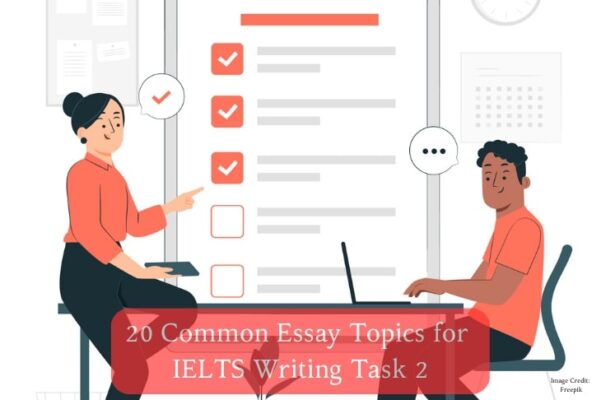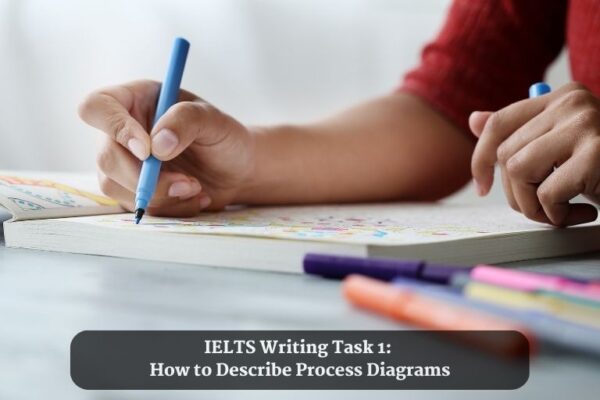IELTS Academic Writing Task 1 – Understanding How to Answer Maps
IELTS Academic Writing Task 1 requires you to describe a visual representation of information in a clear and concise manner. One of the common types of visuals is a map, which can be a bit challenging to describe if you are not familiar with the structure and vocabulary. In this blog, we will provide you with a step-by-step guide on how to answer map questions in IELTS Academic Writing Task 1, along with some mock samples.
Read MoreImprove IELTS Listening through Connected Speech
If you are preparing for the International English Language Testing System (IELTS), you know how important it is to have good listening skills. One of the challenges of the IELTS listening test is that it is designed to mimic natural conversation, which means that the speakers use connected speech.
Read More20 Common Essay Topics for IELTS Writing Task 2
The IELTS writing test is designed to assess a candidate’s ability to write effectively in English. Task 2 of the writing test requires candidates to write an essay on a given topic. Here are 20 common essay topics that are often asked in the IELTS writing test, along with bullet points on what may be generally asked in each of these topics.
Read MoreIELTS Reading: Learn How to ‘Match Headings to Paragraphs’
The IELTS Reading test assesses your ability to comprehend and understand written texts in English. One of the question types in the IELTS Reading test is matching headings to paragraphs. In this question type, you will be given a list of headings and a passage divided into several paragraphs. Your task is to match each heading with the correct paragraph. In this blog, we will provide you with tips and strategies to answer matching headings to paragraph questions and some sample mock questions.
Read MoreVocabulary and Grammar Strategies for IELTS Writing Task 1
The IELTS Writing Task 1 requires candidates to write a summary of a visual representation such as a graph, chart, table, or diagram. To succeed in this task, you need to have a solid grasp of grammar rules and vocabulary. In this blog post, we will discuss some essential grammar and vocabulary strategies to help you excel in IELTS Writing Task 1.
Read MoreIELTS Speaking Test: Understanding the Three Parts of the Test (+ Sample Questions)
The IELTS Speaking Test takes between 11 and 14 minutes and consists of an interview between the test taker and a trained and certified examiner. During the Speaking Test, you’ll answer questions from a certified examiner and will have a guided conversation with them. To get a good score on the Speaking Test, you need to acquire automatic language skills. In addition, you will earn points for your accent and pronunciation.
Read MoreIELTS Writing Task 1: How to Describe Process Diagrams
IELTS Writing Task 1 requires you to describe a process diagram or a graph in written form. The process diagrams in IELTS Writing Task 1 are usually technical and complex, but with the right approach, you can effectively communicate the information in the diagram. Here are some tips to help you describe process diagrams in IELTS Writing Task 1.
Read MoreIELTS Test: Understanding Subject-Verb Agreement
When it comes to IELTS writing, it is essential to have a good grasp of grammar. In particular, you need to master the basics, and one of the most basic parts of grammar is subject-verb agreement.
In this blog, we will explain subject-verb agreement so that you can understand it well enough to score a higher band in your IELTS test.
Read MoreIELTS Writing Task 1: How to Describe Line Graphs
In IELTS Writing task 1, there will be a visual representation or a diagram on which you have to write a paragraph. One of these visual representations may be line graphs. Given below is an example of an IELTS Writing task 1 line graph discussing car thefts in four countries within a period. Let’s check the sample question first and then we will discuss how to answer it.
Read MoreIELTS Academic Reading Multiple Choice Questions – Tips and Practice Questions
Multiple choice questions in the IELTS Reading Test are used to test a wide range of reading skills. Some of these questions, for example, may require you to understand specific points or the main points of the text. You are required to select the best answer from several options (for example, A, B, C, or D), and to write the letter of the answer you have chosen on the answer sheet.
Read More











